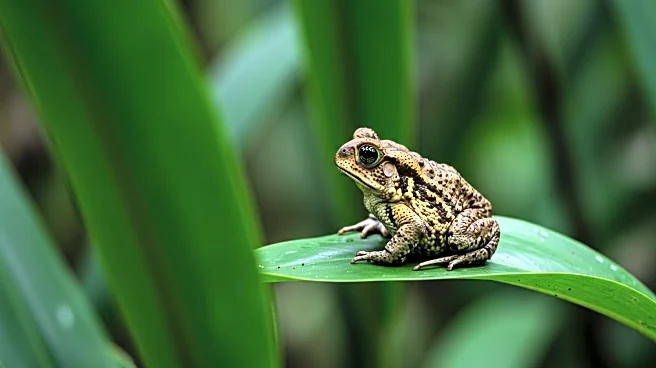What's Happening?
Cane toads, known for their toxic cardiotonic steroids, have been studied for their evolutionary adaptations that allow some predators to consume them without harm. Evolutionary biologist Shabnam Mohammadi explores how these adaptations work and the historical use of these toxins by humans, including their application in treating congestive heart failure. The study highlights the complex interactions between toxic species and their predators.
Why It's Important?
Understanding the adaptations to toxicity in animals is crucial for insights into evolutionary biology and ecological interactions. These adaptations can inform medical research, particularly in the development of treatments using cardiotonic steroids. The study of cane toads and their predators provides valuable information on how species evolve to overcome toxic defenses, which can have implications for biodiversity and conservation efforts.
Beyond the Headlines
The research into cane toads and their toxins also raises ethical considerations regarding the use of natural compounds in medicine. It highlights the importance of preserving biodiversity to maintain ecological balance and the potential for discovering new medical applications from natural sources. The study underscores the interconnectedness of species and the evolutionary arms race between prey and predators.









